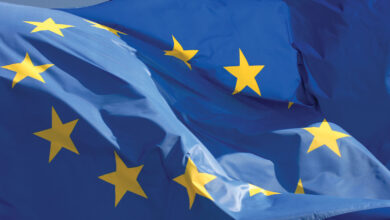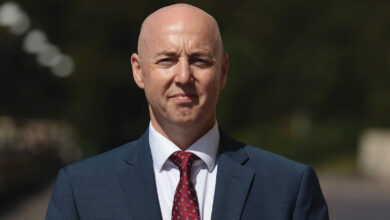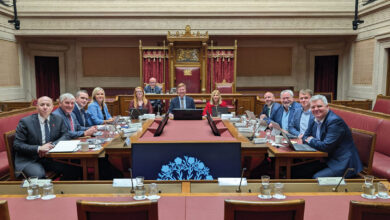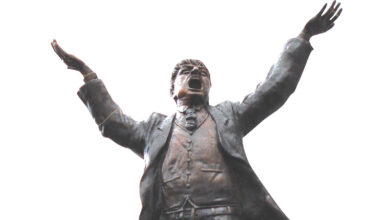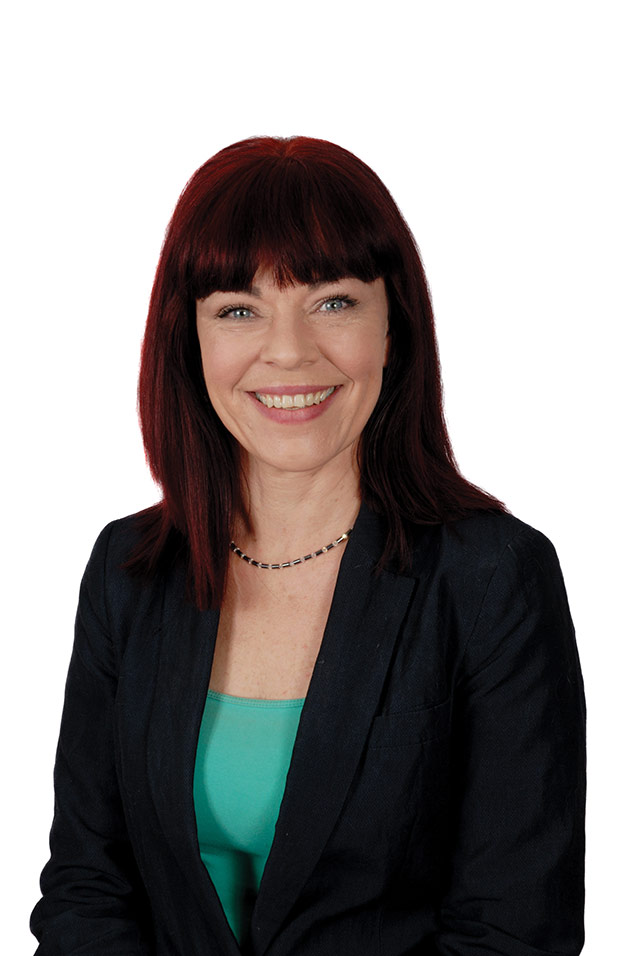 Clare Bailey MLA
Clare Bailey MLA
Clare Bailey is the Deputy Leader of the Green Party and newly elected MLA for South Belfast. After becoming the party’s first ever Assembly member in Belfast she will take up a position on the Committee for Justice.
Outline your background and career to date
I was part of the first intake of pupils at Lagan College, following which I studied drama at Rupert Stanley College. I then moved to London to work in the hospitality industry. My first address was Park Lane, the Grosvenor House Hotel. That was a real eye-opener in terms of seeing the real class divide and the power that wealth can bring.
When I returned to Belfast, I did a range of jobs in retail. I also taught beading and designed custom beaded jewellery – Meryl Streep wore a headpiece I designed for the film ‘Dancing at Lughnasa’.
I returned to studying in my mid-thirties once my children were settled in primary school.
The Women’s Studies access course really grabbed my attention, and I eventually graduated from Queen’s University with a degree in Politics. Following this, I worked in community development in West Belfast and also more recently for Nexus.
I’ve also been involved in several elections with the Green Party, building up a profile in South Belfast which, ultimately, saw me getting elected as the first Green MLA for the constituency this year.
What inspired you to get into politics?
The peace process changed the political landscape. Until then politics had been an alienating space for me, it did not speak my language and it made little sense to my life. I was a new mother at the time and wanted a better future for my children. I saw it as a personal responsibility that if I wanted things to be different, I needed to take some action. I don’t want politics to be confusing; it should make sense to everyone. Joining the Green Party was a deliberate attempt to make my voice louder. I was proud to
be elected deputy leader of the Green Party in 2014.
Who do you admire?
I admire lots of people for different reasons, not least regular people who are working for what they believe in and who are working hard to stay afloat in tough times.
I have great respect for campaigners such as Dawn Purvis, who has been a brave advocate for women particularly through her work at Marie Stopes, but also for working class politics in Northern Ireland. I have a list of people who I will always go back to for inspiration such as poet and civil rights activist Maya Angelou, early suffragists such as Emmeline Pankhurst and more recent figures like human rights campaigner Shami Chakrabarti and author Alice Walker.
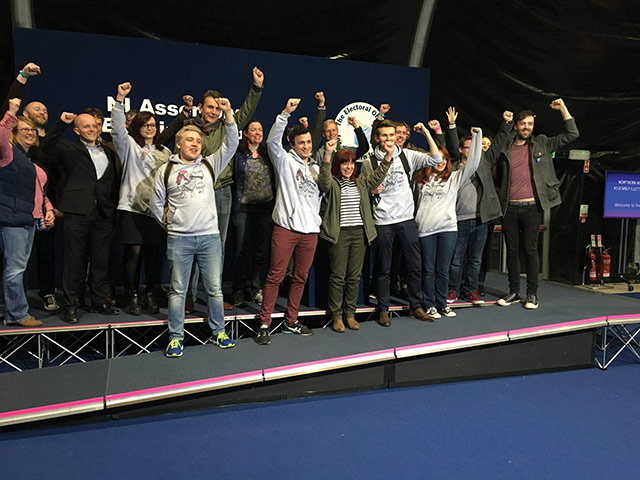
What drew you to the party?
I found out about the Green Party when I was at Queen’s University. It was exciting to learn that there was a real, tangible alternative to traditional politics in Northern Ireland. I liked that the Green Party has global connections, as well as a commitment to social justice, which is inextricably linked to the environment in which we live.
One of the most important things for me is that the Green Party is a party of volunteers. It doesn’t accept corporate donations and so everyone from members to party activists therefore believe in the Party’s aims and objectives. No office holders are paid, and again that keeps it real. The grassroots democracy, which is integral to the Green Party, means that the members lead the party, not the other way round.
What are your key priorities?
Homelessness is a massive problem and it’s much more than about those who end up on the streets. There is a whole series of events in the background – system failures, health problems, lack of state provision and affordable housing, which lead to people having to sleep on the streets. These things need to be tackled. I was made homeless and I am convinced that if I didn’t have two children, I would have been on the street myself.
Gender and equality issues are also high on the agenda. While we now have 30 women elected as MLAs, we need to create an environment which allows the female experience to come through into public policy making. So much more needs to be done to make people feel valued and included here in Northern Ireland. I do not think we have a good record to date on this. I see this as an urgent priority.
What are your interests outside work?
Family is important and I am proud of my daughter, who is about to start university, and my son, who is going into his final year of IT studies.
It’s been a while, but when I can get some time to myself I love cooking. I’m a big foodie and enjoy gardening and growing my own food (usually unsuccessfully but it’s all about the learning).
I will continue to be a volunteer escort at Marie Stopes. Marie Stopes is in South Belfast, on a street in the constituency that I represent and I will not shy away from that.
When it all gets a bit hectic, there is nothing better than fighting the Atlantic winds on a beach in the West Coast of Ireland to clear the head.

